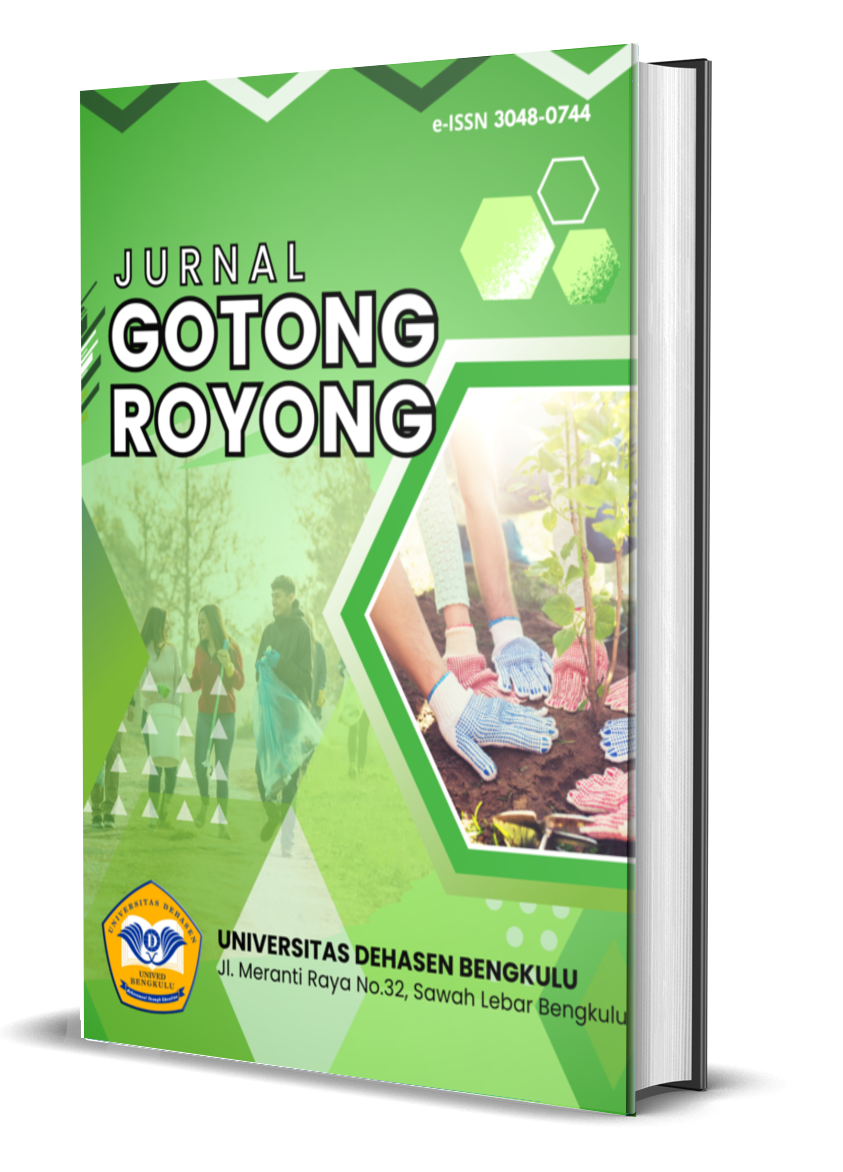Sosialisasi Pengelolaan Sampah Organik Dan Non Organik Menjadi Nilai Tambah Di SMPN 16 Kota Bengkulu Kelurahan Betungan
Abstract
The increasingly complex waste problem in Indonesia requires an increase in public awareness, especially the younger generation, in managing waste from an early age. This activity aims to increase junior high school students' understanding of organic and non-organic waste management through interactive and educational socialization. The method used is a qualitative descriptive approach involving 21 participants, consisting of students and accompanying teachers at SMP Negeri 16 Bengkulu City. Data were collected through observation, short interviews, and documentation of activities. The results of the activity showed that students were enthusiastic about participating in the socialization and showed an increase in understanding of the types of waste and how to manage it, especially through the 4R method (Reduce, Reuse, Recycle, Recovery). The use of visual media and active discussions proved effective in increasing participant interest and involvement. The conclusion of this activity is that socialization is able to raise students' awareness of the importance of sorting and processing waste, and encourage them to become agents of change in maintaining the cleanliness of the school environment and its surroundings.
Downloads
References
2. Klhk. (2020). Sistem Informasi Pengelolaan Sampah Nasional (Sipsn). Kementerian Lingkungan Hidup Dan Kehutanan.
3. Pratiwi, A., & Riyadi, B. (2021). Pengaruh Pendidikan Lingkungan Terhadap Sikap Peduli Lingkungan Siswa Smp. Jurnal Pendidikan Dan Ilmu Sosial, 10(2), 115–123astuti, A. P., Tri, E., Maharani, W., 2020. Semarang, U. M., Semarang, U. M., Semarang, U. M., & Gula, V. (N.D.). Pengaruh Variasi Gula Terhadap Produksi Ekoenzim Menggunakan Limbah Buah Dan Sayur. 470–479.
4. Susilowati, L. E., Arifin, Z., & Kusumo, B. H. (2021). Pengomposan Sampah Organik Rumah Tangga Dengan Dekomposer Lokal Di Desa Narmada, Kabupaten Lombok Barat. Jmm (Jurnal Masyarakat Mandiri), 5(1), 34–45.
Copyright (c) 2025 Erika Nanda Sasmita, Suli Harni, Triana Puspita, Lutviana Rahmandani, Dinda Dwi Agnesia, Hesti Nur’aini, Herri Fariadi, Herlin Herlin

This work is licensed under a Creative Commons Attribution-ShareAlike 4.0 International License.
An author who publishes in the Jurnal Gotong Royong agrees to the following terms:
Author retains the copyright and grants the journal the right of first publication of the work simultaneously licensed under the Creative Commons Attribution-ShareAlike 4.0 License that allows others to share the work with an acknowledgement of the work's authorship and initial publication in this journal
Submission of a manuscript implies that the submitted work has not been published before (except as part of a thesis or report, or abstract); that it is not under consideration for publication elsewhere; that its publication has been approved by all co-authors. If and when the manuscript is accepted for publication, the author(s) still hold the copyright and retain publishing rights without restrictions. For the new invention, authors are suggested to manage its patent before published. The license type is CC-BY-SA 4.0.
Jurnal Gotong Royong
is licensed under a Creative Commons Attribution-ShareAlike 4.0 International License.










